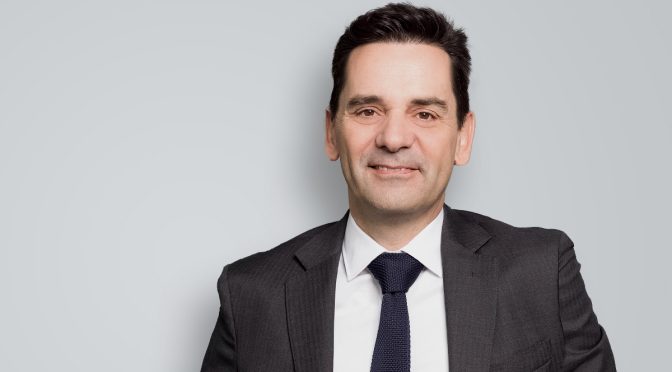WindEurope’s Board of Directors has elected José Luis Blanco, CEO of Nordex Group, as the Association’s new Chair for an 18-month term. The Board also elected Alfredo Parres, Head of Renewables at Hitachi Energy, as its new Vice-Chair. The election comes one week after European Commission President von der Leyen announced a new “Wind Power Package” to support Europe’s struggling wind energy supply chain.
Today WindEurope’s Board of Directors has elected José Luis Blanco, CEO at the Nordex Group, as the Association’s new Chair and Alfredo Parres, Head of Renewables at Hitachi Energy, as its new Vice-Chair. The election comes one week after European Commission President Ursula von der Leyen in her “State of the Union” speech announced a new “Wind Power Package” and underlined that “the future of our clean tech industry has to be made in Europe”.
The European Union wants much more home-grown and competitive wind energy to decarbonise its energy system and to reduce its dependence on imported fossil fuels. The EU and Governments have set ambitious targets – 420 GW of wind energy by 2030, up from just above 200 GW today.
But the reality in the wind industry does not reflect this ambition. The struggles of the European wind supply chain result in Chinese turbine manufacturers now winning first orders in Europe. They offer cheaper turbines, looser standards and unconventional financial terms. There is a very real risk that the expansion of wind energy will be made in China, not in Europe.
Commenting on his appointment, José Luis Blanco said: “We welcome European Commission President von der Leyen’s repeated commitment to supporting a Green Deal “made in Europe”. Wind energy is a European success story. It is set to provide jobs to 450,000 Europeans by 2030. But Europe’s wind turbine manufacturers and their suppliers are under pressure. The EU’s “Wind Power Package” must further accelerate permitting, get the auction design for wind energy right and strengthen and expand EU manufacturing and supply chains. Otherwise, the EU will not be able to de-risk and increase the resilience of its energy supply and economy. The announced measures cannot come soon enough.”
The European Commission and European Parliament want to accelerate the electrification of Europe’s economy. This makes the build-out and optimisation of Europe’s its electricity grids indispensable.
Alfredo Parres commented: “Electricity grids are the backbone of Europe’s decarbonised future energy system. Europe must double its annual investment in electricity grids to deliver a seamless integration of renewable energy in line with the EU 2030 targets. The EU must strengthen and expand its current grid supply chain to avoid bottlenecks in offshore substations, transformers, cables, transformers, and electrical switchgear. To accelerate the expansion and optimisation of Europe’s grids the EU must radically simplify grid planning processes and clarify rules on grid connection and curtailment.”
The Renewable Energy Directive revision has brought important improvements to wind energy planning and permitting. Now it’s time for Member States to implement these positive changes.
But the current European Commission is yet to finalise other important legislative files. WindEurope will be laser-focused to ensure the upcoming EU Electricity Market Design revision restores investment signals for wind energy projects. Investments in wind energy have not been at the level required to meet Europe’s 2030 energy security and climate targets. Europe invested only €17bn in new wind in 2022, the lowest since 2009.
*José Luis Blanco serves as CEO of Nordex Group for more than six years. Before that he held different roles within the wind industry, among them more than 3 years as CEO Wind Power at Acciona and different management roles at Gamesa.
*Alfredo Parres is working as Head of Renewables at Hitachi Energy for two years. Before that he has worked more than 20 years at ABB where he held different positions focusing on in the seamless integration of renewable energies into the grid. His customers included wind turbine manufacturers, engineering contractors, independent power producers and utilities.


